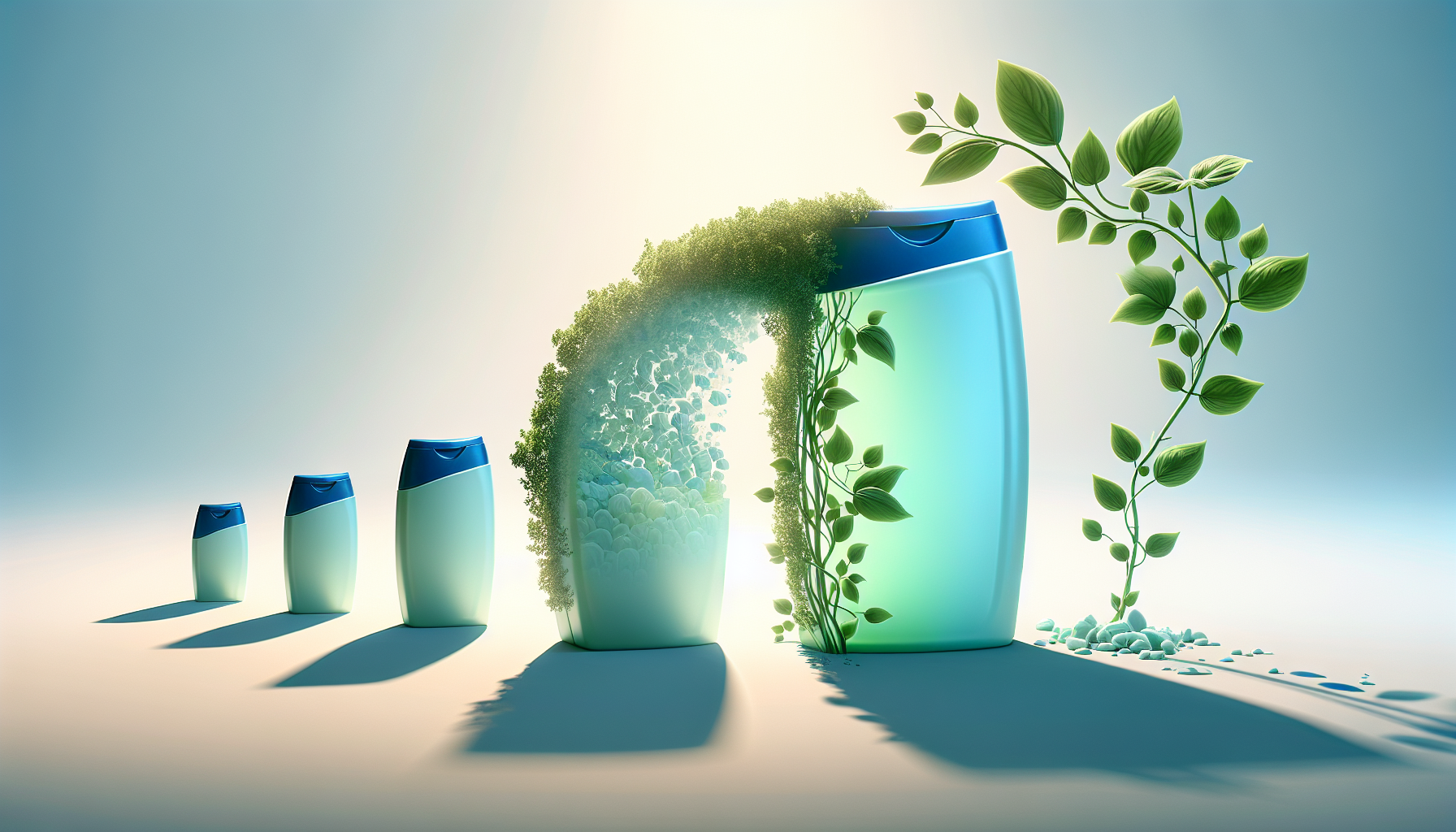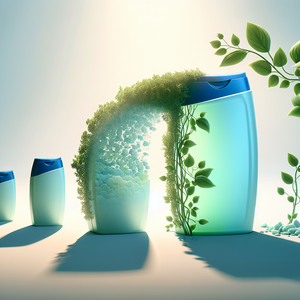The Eco-Friendly Impact of Less Shampooing

Traditional hair care routines often involve daily shampooing, a practice that can lead to excessive water usage and increased consumption of plastic packaging. According to the World Wildlife Fund, the average shower uses approximately 17 gallons of water, and reducing the frequency of shampooing can significantly cut down on this consumption. This is especially relevant given the global concerns around water scarcity and the urgent need to conserve freshwater resources. Moreover, the beauty industry is a major contributor to plastic waste, with millions of shampoo bottles ending up in landfills each year. By using less shampoo, consumers can decrease their plastic footprint, contributing to a reduction in waste. This shift aligns with broader environmental goals of reducing single-use plastics and promoting recycling and reuse initiatives.
The Rise of Eco-Friendly Hair Care Brands
In response to consumer demand for sustainable products, many hair care brands have begun to offer eco-friendly alternatives. These include shampoos made from biodegradable ingredients, packaging that is recyclable or compostable, and formulas that are concentrated to require less product per use. Brands such as Ethique and Plaine Products are leading the charge in this green revolution, offering products that align with the principles of sustainability. Ethique, for example, provides solid shampoo bars that eliminate the need for plastic bottles entirely, while Plaine Products use refillable aluminum bottles to reduce waste. These companies are setting new standards for sustainable practices within the industry, and their success illustrates a growing market for environmentally conscious consumers. Hair stylists committed to eco-friendly practices often recommend these brands to clients looking to minimize their environmental impact while maintaining healthy hair.
The Role of Hair Stylists in Promoting Sustainability
Hair stylists play a crucial role in educating clients about the benefits of reducing shampoo frequency. By understanding each client's unique hair type and lifestyle, stylists can recommend personalized washing schedules that align with sustainable practices. For instance, clients with dry or curly hair may benefit from washing less frequently, as these hair types often require less cleansing to maintain natural oils. Stylists can also introduce clients to alternative cleansing methods, such as co-washing (using conditioner to wash hair) or water-only washing, which can further reduce the need for traditional shampoos. These methods not only support environmental goals but also promote healthier hair by preserving natural oils and reducing exposure to potentially harsh chemicals found in some shampoos.
Supporting Evidence and Testimonials
The eco-friendly impact of less frequent shampooing is supported by both scientific evidence and personal testimonials. Studies have shown that reducing shampoo frequency can help maintain the scalp's natural balance, leading to healthier hair over time. Clients who have adopted this practice often report improved hair texture and reduced scalp irritation, alongside the satisfaction of contributing to environmental sustainability. Sustainable salons, such as Green Circle Salons, are also emerging as leaders in this movement, recycling hair clippings, foils, and color tubes to further reduce their ecological footprint. These salons demonstrate the potential for the beauty industry to adopt more sustainable practices, setting an example for both stylists and consumers.
The movement towards less frequent shampooing is a testament to the beauty industry's growing commitment to sustainability. By reducing water usage, decreasing plastic waste, and embracing eco-friendly products, consumers and hair stylists can work together to make a positive impact on the environment. As more individuals become aware of the benefits of this practice, it's likely that the trend will continue to gain momentum, paving the way for a more sustainable future in hair care. Embracing this change not only fosters healthier hair but also aligns with a broader commitment to protecting our planet. By reducing our environmental footprint, we contribute to a cleaner, more sustainable world for future generations.
Sustainable Beauty Product Developer
L'Oréal, Burt's Bees, Aveda
Responsibilities
Design and formulate eco-friendly hair care products using natural and biodegradable ingredients.
Collaborate with research teams to minimize the environmental impact of product manufacturing processes.
Conduct market analysis to identify trends in sustainable beauty products and consumer preferences.
Work with packaging designers to create recyclable or compostable packaging solutions.
Eco-Conscious Salon Manager
Green Circle Salons, Aveda Salons, independent eco-focused salons
Responsibilities
Implement sustainable practices within the salon, such as recycling programs and energy-efficient technologies.
Educate staff and clients about eco-friendly hair care routines and products.
Partner with sustainable product suppliers to stock the salon with environmentally friendly options.
Monitor and reduce the salon's overall environmental footprint.
Environmental Impact Analyst for Beauty Brands
Estee Lauder, Procter & Gamble, Unilever
Responsibilities
Assess and report on the environmental impact of beauty products and practices.
Develop strategies to reduce carbon footprints and waste in product lifecycle management.
Collaborate with product teams to enhance sustainability efforts across the supply chain.
Provide insights to guide corporate social responsibility and sustainability initiatives.
Sustainable Packaging Designer
Eco-friendly packaging companies, beauty brands with a focus on sustainability
Responsibilities
Create innovative packaging solutions that minimize plastic use and maximize recyclability.
Work closely with product developers to ensure packaging aligns with sustainability goals.
Prototype and test new materials for durability and environmental impact.
Stay informed on emerging sustainable materials and technologies.
Green Marketing Specialist for Hair Care Brands
SheaMoisture, Ethique, Plaine Products
Responsibilities
Develop marketing campaigns that highlight the eco-friendly aspects of hair care products.
Engage with environmentally conscious consumers through social media and digital platforms.
Collaborate with product teams to ensure messaging aligns with brand sustainability goals.
Analyze consumer feedback to refine marketing strategies and product offerings.


